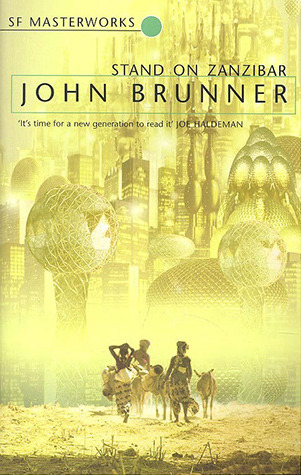
Stand on Zanzibar Summary of John Brunner's Book

Stand on Zanzibar: An Exploration of Dystopia and Humanity
Stand on Zanzibar, a science fiction novel by John Brunner, delves into a world where society is controlled by mega corporations, advanced technology, and overpopulation. First published in 1968, the book remains incredibly relevant today with its portrayal of a future that seems eerily accurate. Set in a world dominated by General Technics, the story follows Norman Niblock House, an ambitious executive at the corporation, and Donald Hogan, his seemingly unassuming roommate who holds a dangerous secret. As their lives intersect, the novel paints a vivid picture of a future plagued by societal issues and technological advancements that threaten the very fabric of humanity.
Characters
Norman Niblock House: Norman is a rising star at General Technics, a powerful corporation that is on the brink of global dominance. He is driven by ambition and is determined to secure his place at the top of the corporate ladder. Despite his success, Norman is haunted by the dark underbelly of the world he inhabits.
Donald Hogan: Donald is Norman's roommate, a seemingly unassuming bookworm who is actually a spy. He uncovers a groundbreaking discovery in genetic engineering that has the potential to change the course of humanity. However, this discovery comes at a grave cost, putting Donald's life in jeopardy.
Detailed Summary
Set in a future world where mega corporations wield immense power, Stand on Zanzibar follows the intertwined lives of Norman Niblock House and Donald Hogan. Norman, driven by ambition, is on the fast track to success at General Technics, a corporation that is on the cusp of taking over a country in Africa. As he navigates the cutthroat world of corporate politics, Norman is forced to confront the moral implications of his actions.
Meanwhile, Donald Hogan, Norman's unassuming roommate, makes a startling discovery in genetic engineering that has the potential to revolutionize the world. However, as he delves deeper into his research, Donald becomes a target for those who seek to control this powerful technology.
As Norman and Donald's paths converge, they are forced to confront the harsh realities of a world ravaged by overpopulation, advanced technology, and corporate greed. The novel explores themes of power, morality, and the impact of technology on humanity, painting a bleak but thought-provoking picture of the future.
Analysis
Stand on Zanzibar is a masterful work of science fiction that presents a chillingly accurate portrayal of a future that is not so far removed from our own reality. John Brunner's exploration of themes such as overpopulation, corporate control, and genetic engineering forces readers to confront the potential consequences of unchecked technological advancement.
The novel's intricate narrative structure, which echoes John Dos Passos' U.S.A. Trilogy, adds layers of complexity to the story and provides a multifaceted view of a world on the brink of collapse. Through its richly developed characters and vividly depicted world, Stand on Zanzibar offers a compelling commentary on the human condition and the dangers of allowing technology to dictate the course of society.
Final thoughts
To conclude, Stand on Zanzibar is a groundbreaking work of science fiction that remains as relevant today as it was when it was first published in 1968. Its exploration of dystopian themes, complex characters, and thought-provoking narrative make it a must-read for fans of the genre. I highly recommend picking up a copy of this novel and immersing yourself in its prescient and powerful storytelling.
If you enjoyed this summary, I encourage you to purchase the complete book to fully experience the brilliance of John Brunner's vision. Alternatively, you can listen to the audiobook for a captivating audio experience that will transport you to a world unlike any other. Stand on Zanzibar is a true classic of science fiction that demands to be read and savored.
9781857988369 (ISBN10: 1857988361)






Related Books